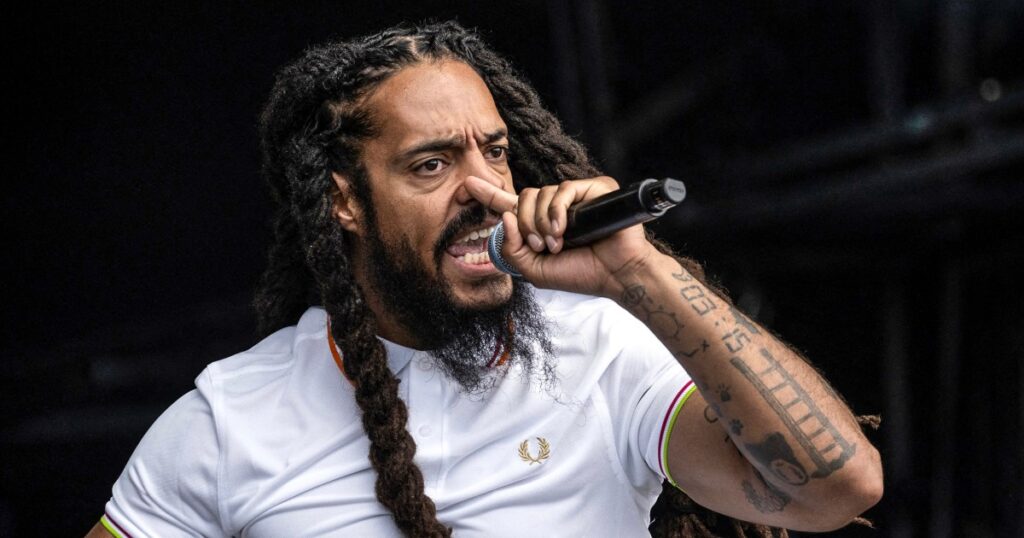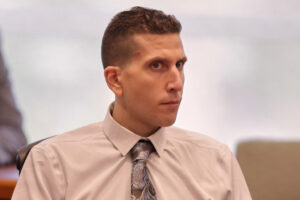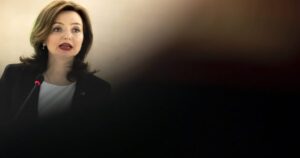
The U.S. State Department has revoked visas for English rap punk duo Bob Vylan following their controversial performance at the Glastonbury Festival, where they led chants perceived as supporting Gaza residents and wishing harm upon Israeli forces. The decision, announced on Monday, has sparked a significant international response.
State Department Deputy Secretary Christopher Landau stated that the visas were revoked due to the “hateful tirade at Glastonbury, including leading the crowd in death chants.” The performance, which took place on Saturday, featured Bob Vylan leading the crowd in chants of “free, free Palestine” and “death, death to the IDF,” as captured in videos circulating on social media.
Controversial Chants and Their Implications
The phrase “from the river to the sea, Palestine must be, will be, inshallah, it will be free,” uttered by Vylan during the performance, has long been a contentious slogan. It refers to the land between the Jordan River and the Mediterranean Sea and has gained traction on social media, especially following the October 7, 2023, terrorist attacks on Israel by Hamas and the subsequent Israeli military action in Gaza.
While some pro-Palestinian activists interpret the phrase as a call for peace, others argue it constitutes hate speech. The debate over its meaning reflects broader tensions in the region and the global discourse surrounding it.
Legal and Diplomatic Repercussions
In response to the performance, Somerset Police have assigned a detective to investigate whether any hate crime statutes were violated. “We have received a large amount of contact in relation to these events from people across the world and recognize the strength of public feeling,” the police department stated. “There is absolutely no place in society for hate.”
The U.S. State Department’s condemnation of the rappers underscores a firm stance against what it perceives as the glorification of violence and hatred. “Foreigners who glorify violence and hatred are not welcome visitors to our country,” Landau emphasized.
Impact on Bob Vylan’s U.S. Tour
Bob Vylan was scheduled to begin a U.S. tour on October 24 in Spokane, Washington, with performances planned in major cities including Seattle, Salt Lake City, Denver, and Los Angeles. As of Monday, representatives for the U.S. venues involved in the tour were unavailable for comment, and messages left for the artist, whose real name is Pascal Robinson-Foster, went unanswered.
In a social media post on Sunday, Robinson-Foster did not directly address the Glastonbury performance but instead shared a personal anecdote about his daughter advocating for healthier school meals. “As we grow older and our fire possibly starts to dim under the suffocation of adult life and all its responsibilities, it is incredibly important that we encourage and inspire future generations to pick up the torch that was passed to us,” he wrote.
Broader Context and Historical Parallels
The controversy surrounding Bob Vylan’s performance is not an isolated incident but part of a larger pattern of artistic expression intersecting with political discourse. Historically, musicians have often used their platforms to comment on social and political issues, sometimes leading to backlash or censorship.
Experts note that the current geopolitical climate, particularly in the Middle East, amplifies the sensitivity of such expressions. The ongoing conflict between Israel and Palestine remains a deeply divisive issue, with strong emotions on both sides.
“Art has always been a reflection of society’s struggles and aspirations,” said Dr. Emily Carter, a professor of cultural studies. “While it can serve as a powerful tool for change, it also has the potential to inflame tensions, especially in a world as interconnected as ours.”
Future Implications and Next Steps
The revocation of Bob Vylan’s visas highlights the complex interplay between artistic freedom and diplomatic policy. As the situation develops, it raises questions about the limits of free expression and the role of governments in regulating speech that crosses borders.
For Bob Vylan, the immediate concern is the impact on their U.S. tour and the potential for further repercussions. Meanwhile, the broader conversation about the intersection of art, politics, and international relations is likely to continue, with implications for artists and audiences worldwide.





